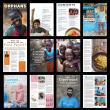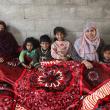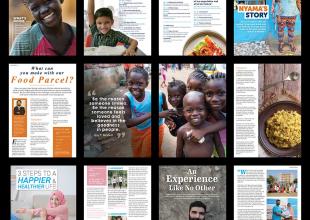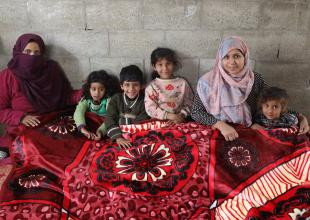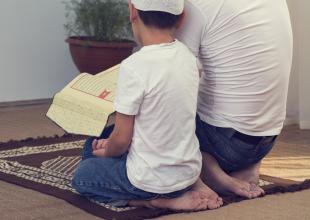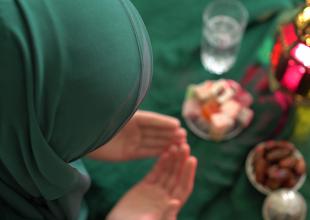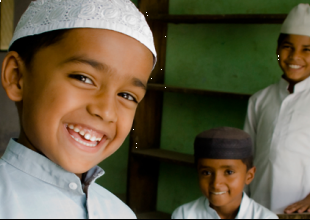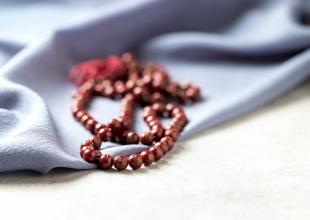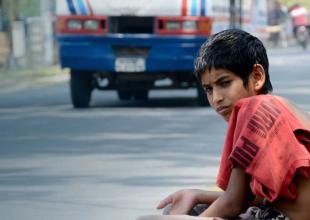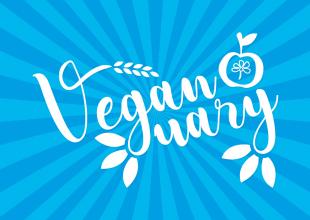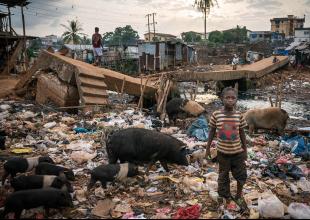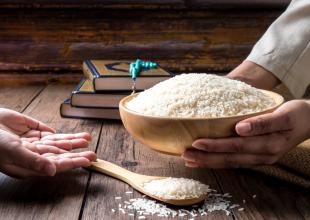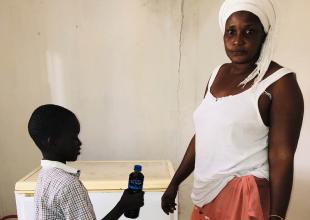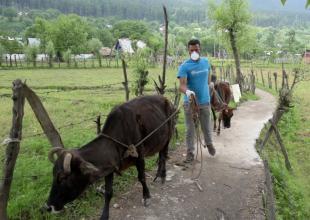Posted: Feb 09 2016
Dangerous work: Asnapshot of yourorphan support inSomalia
An integral part of Orphans in Need’s work consists of undertaking annual monitoring visits to the 14 countries we operate in. The purpose of these monitoring visits is to ensure that our donors’ funds are being delivered effectively by our country offices and the partner organisations we work with. The visits are also an opportunity to learn about the other work of our partners and to give them any extra support they may require, in addition to auditing our partner’s finances, orphan files as well as relevant policies and procedures.
Our local partner offices are in the capital of Somalia, Mogadishu. Somalia is amongst the most perilous countries in the world, under constant threats of bombings and other terrorist attacks, it is ranked as one of the most dangerous countries in the world. According to the World Report, there are over 2 million internally displaced persons (IDPs) driven out of their homes due to terrorist activity, fear of abuse and killings, airstrikes and IED attacks (improvised explosive devices). It’s against this backdrop of security issues that Orphans in Need support vulnerable orphans and undertakes monitoring visits to measure the impact of our work.
We visited orphan families in Mogadishu and Afgooye, a town in the South-eastern Shebelle region of Somalia and interviewed 25 of our sponsored orphans and their widowed mothers. During such interviews, we asked key questions about what the sponsorship funds are used for, the educational progress and health conditions of the children and how satisfied orphan families are with the services we provide.
We also had the opportunity to witness the distribution of 220 food parcels to widowed families in Mogadishu, funded by our generous donors. Widow Mumina had travelled the 30km from Afgooye to collect her food parcel. She received 25kg of rice, 10kg of flour, 5kg of sugar, 2kg of dates, 250g of tea and 2 litres of oil.
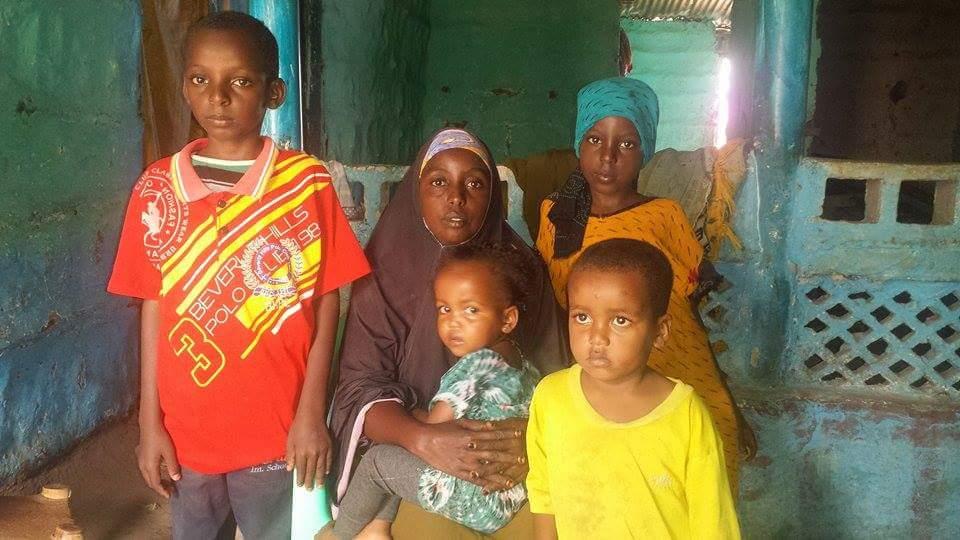
Mumina and family
We took the opportunity to visit Mumina and her children in their home to hear their story.
Mumina lives with her four children, Baker, Hamara, and the two youngest aged four and two. They all live in one bedroom within a small house that is shared with relatives. Mumina has sadly been widowed twice, which is not uncommon in Somalia. Her first husband died of malaria and her second husband died of diarrhoea. The family had been struggling without the support of a male breadwinner.
Orphans in Need currently sponsor Baker. Thanks to this sponsorship, Baker is a healthy and happy boy, is able to go to school full time and is doing very well. The sponsorship amount also provides food for the family.
Mumina works morning shifts on a farm to harvest vegetables while the children are looked after by Baker’s eight-year-old sister, Hamara, who is able to attend Quran School but only in the afternoon once her mum returns from the field.
Orphans in Need is planning to sponsor the rest of the family so that Mumina is able to provide the full-time love and care that her children need and so that her children can all attend school full time.
Orphans in Need currently sponsor 360 orphans in Somalia. It is just one of the countries in which our teams work to provide support to widows and orphans in need and your contributions allow us to continue providing food, medical supplies and clothing to the communities that would otherwise go without. Please give to our Orphan Sponsorship Programme today and help to give children living in poverty and the communities trapped by conflict some hope for a better future.
Just £30 a month, equivalent to £1 a day, is enough to provide an orphan child food, medical care and access to education for a stronger future. Your contributions are helping Islamic orphans receive guidance, community and the opportunity to attend Quran school whilst reassuring widows that their children are fed and cared for.
Your donations enable our teams at Orphans in Need to give the care and guidance every child deserves for the best start in life and by donating to our Global Orphan Care campaign, you can provide clothing and food parcels, treat the sick and help us to build more classrooms and homes for communities living in poverty.

